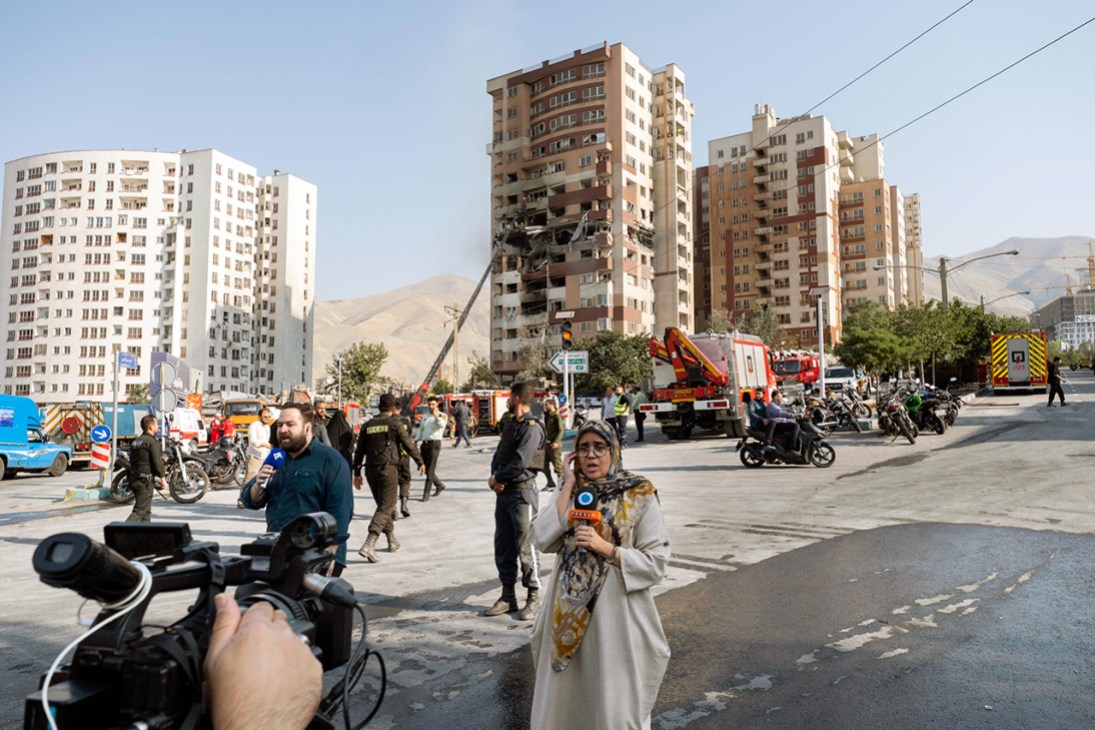Israel’s strikes have weakened Iran’s image – that should concern the world
Israel’s initial attack on Iran on Friday was far from the first targeted blow against senior military leadership. It wasn’t even close to being the first such operation on what is now Iranian territory. In 653 BCE, the Assyrian Empire dealt with the vexatious kingdom of Elam by beheading the Elamite monarch, King Tuemman, and hanging his head from a tree – a literal decapitation strike.
Israel’s strikes on Iran, Operation Rising Lion, are nevertheless something new, enabled by the accelerating development of drone technology. A significant cohort of Iran’s military leadership – including the commander of the Islamic Revolutionary Guard Corps and the chief of staff for Iran’s armed forces – are dead, with inevitably disruptive effects upon the country’s capacities. All things considered, it also has to be imagined that persuading anyone to replace them will be a challenge

News of Israel’s strikes arrived on the second day of this year’s Globsec Forum, held in Prague late last week. Nobody was exactly astonished. There was much discussion on the first day of reports that the US was evacuating non-essential personnel from embassies in the Middle East. I suggested to one former European national leader that this could be theatrical stakes-raising posturing ahead of the next round of negotiations on Iran’s nuclear programme: “I’d be very surprised,” they replied. “You don’t do that if you’re not very serious.”
On the second day of Globsec, I asked a current European minister, not notable for their political sympathies to either US president Donald Trump or Israeli prime minister Benjamin Netanyahu, for their thoughts: “The reality,” they said, “is that nobody likes Iran.” In these circumstances, however, it is generally assessed to be unlikely that Iran would respond favourably to Trump’s renewed offer of a deal. It would be perceived as capitulation – because that’s exactly what it would be.
“Iran is not going to give up all chances of [uranium] enrichment,” Steve Erlanger, The New York Times’ chief diplomatic correspondent for Europe, told Monocle. “They’ve made it very clear that to do so would be to surrender, and that would be harder to do now. But Steve Witkoff, Trump’s envoy, has been trying to be imaginative, despite the pressure from the MAGA people around the president, to phase out Iranian enrichment – this idea of a consortium building a whole new enrichment facility on an island that Iran would share with Qatar, so that Iran can say they’re still enriching and the Americans can say no, there’s no enrichment going on. But now all this seems to be, if I can use the phrase, blown out of the water.”
Though Operation Rising Lion is new in some respects (the scale and the means of Israel’s strikes against Iran), it is not a departure from Israel’s doctrine of several decades’ standing where the nuclear ambitions of its potential antagonists are concerned. It has been 44 years since the Israeli Air Force (IAF) bombed the reactor that Iraq was building near Baghdad. It has been 18 years since the IAF bombed the reactor that Syria was assembling, with North Korean assistance, in Deir ez-Zor. And the prospect of such action has always been the unacknowledged backstop to all negotiations over Tehran’s nuclear ambitions. Iran, like a bewildering number of Israel’s nemeses across the decades, seems to have underestimated Jerusalem’s resolve.
Mueller is a contributing editor at Monocle and host of ‘The Foreign Desk’ on Monocle Radio. For more opinion, analysis and insight, subscribe to Monocle today.



